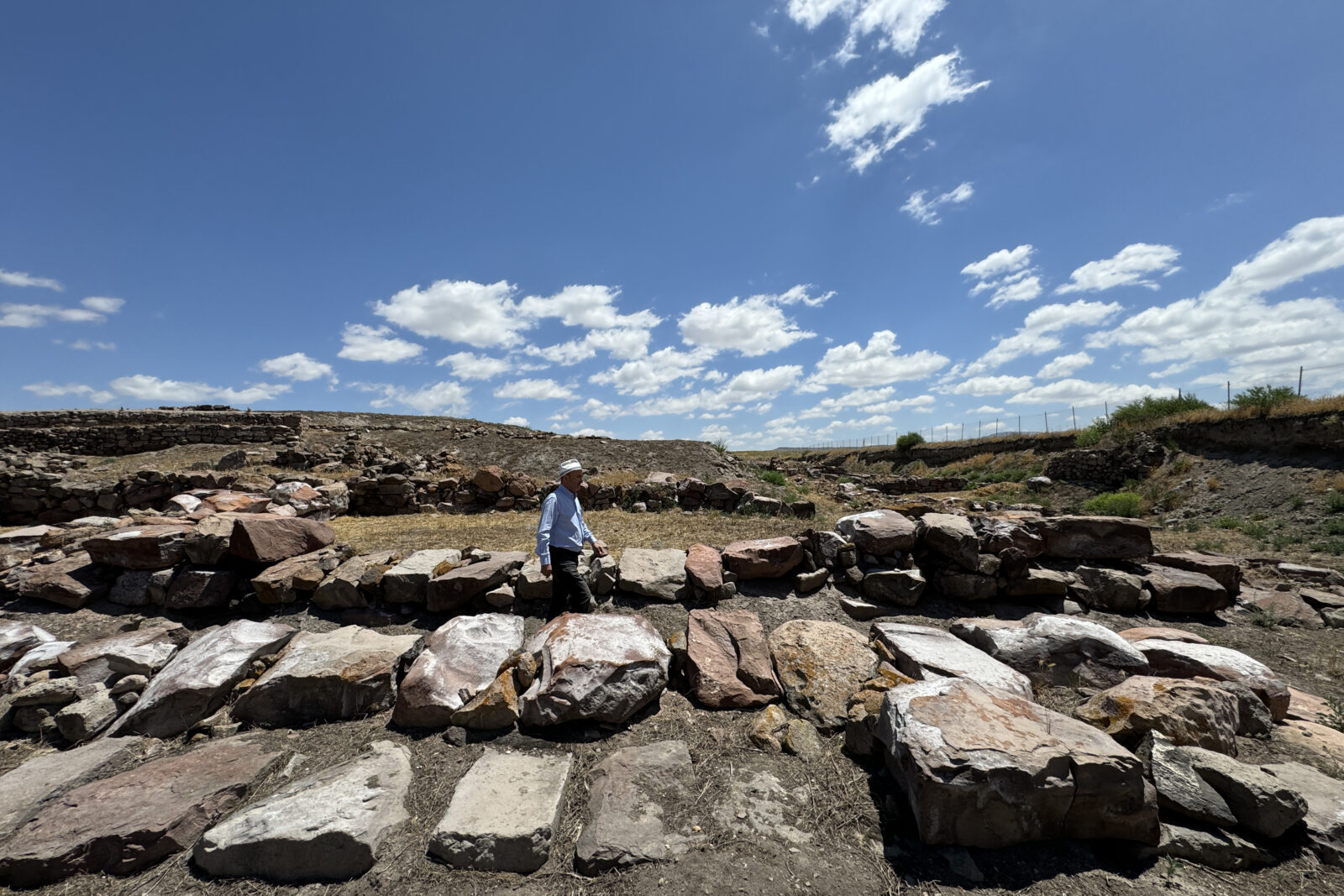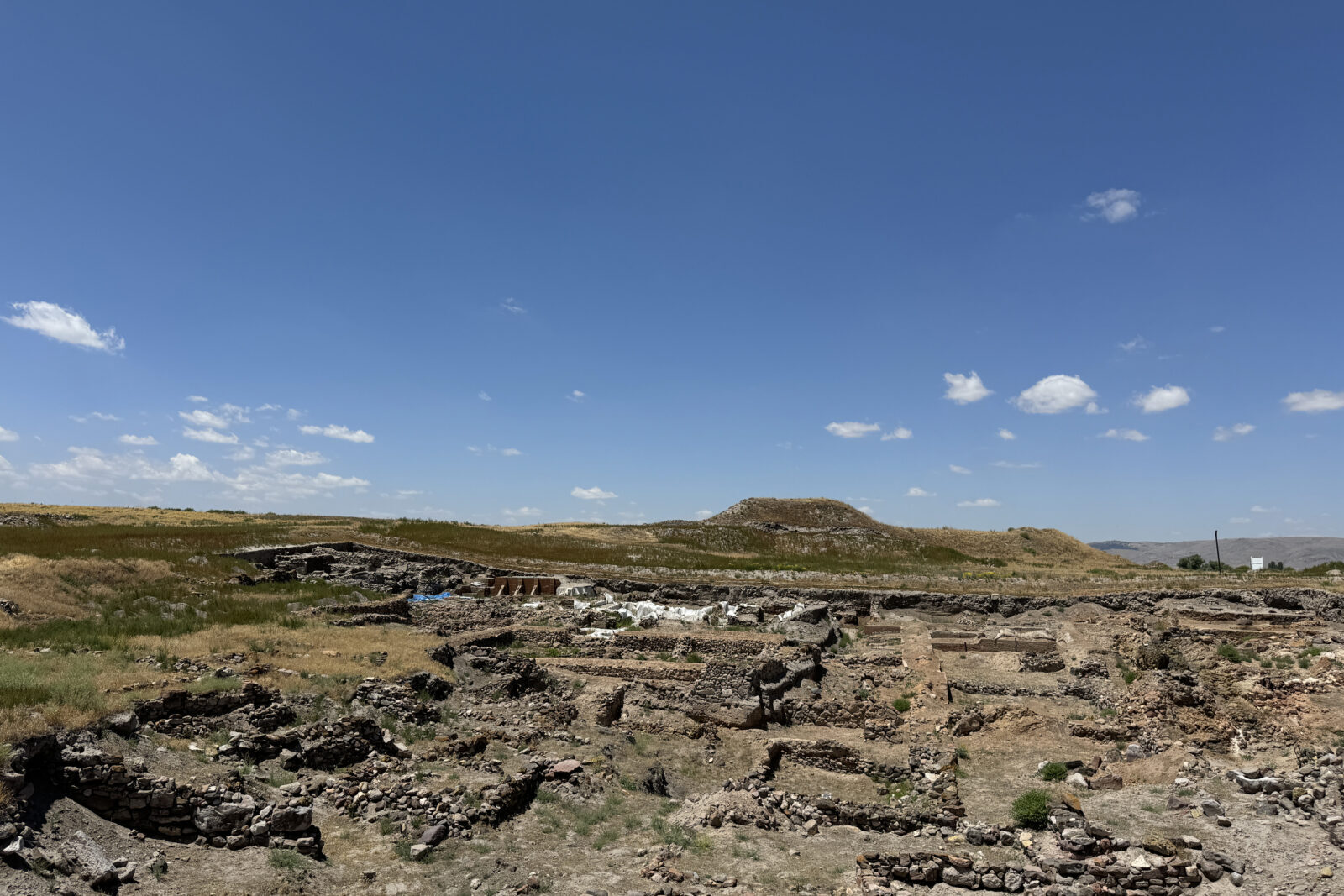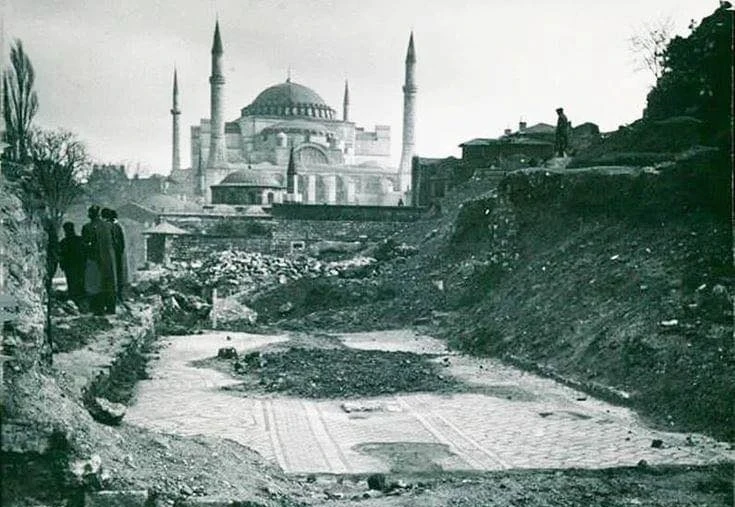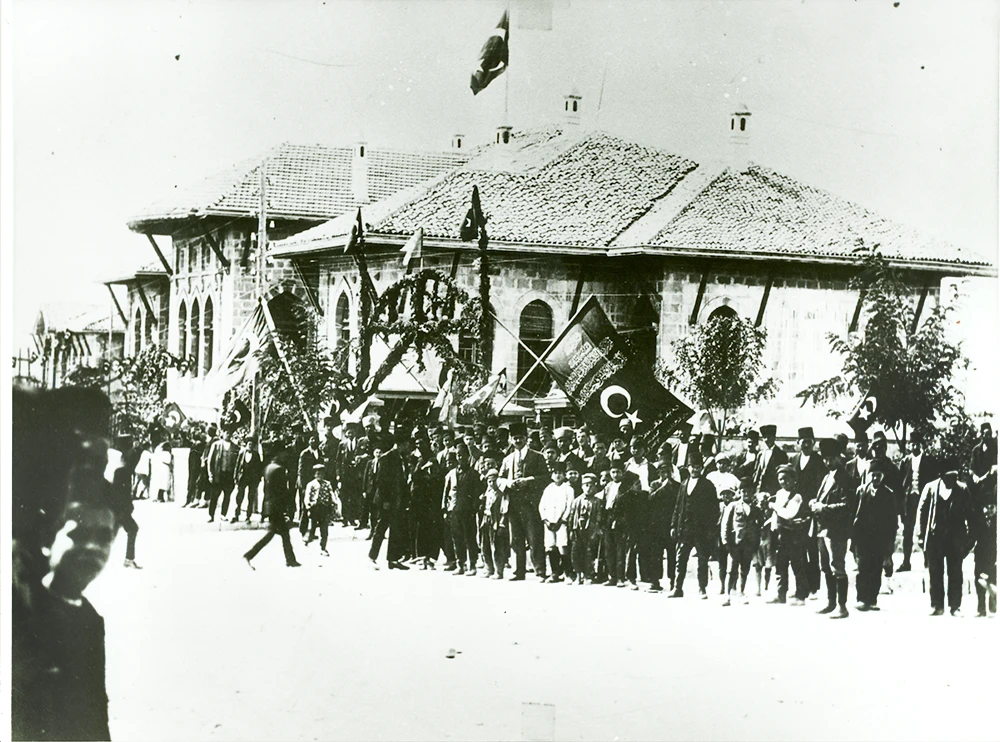Investigating drought that ended Akkadian Empire in Türkiye
 Kultepe Kanis/Karum Mound, one of the largest ruins in Anatolia, Kayseri, Türkiye, June 28, 2024 (Photo by AA Photo)
Kultepe Kanis/Karum Mound, one of the largest ruins in Anatolia, Kayseri, Türkiye, June 28, 2024 (Photo by AA Photo)
Excavations at Kayseri’s Kultepe Kanis-Karum Mound are set to uncover the impact of the catastrophic drought that allegedly ended the Akkadian Empire in northern Anatolia.
As one of Anatolia’s most significant archaeological sites, the mound is the focal point of this year’s excavations, aiming to investigate the influence of the severe drought that is said to have brought the Akkadian Empire to its knees.
Led by professor Fikri Kulakoglu from Ankara University’s faculty of languages, history, and geography, this research seeks to understand the broader implications of this ancient climate catastrophe.
Located 20 kilometers (12.427 miles) along the Kayseri-Sivas highway, Kultepe is a site of immense historical significance, where archaeological excavations have been ongoing since 1948. The site is a treasure trove of ancient relics, providing a window into the lives of early Anatolian civilizations.
Kulakoglu, who is heading the current excavation, emphasizes the multidisciplinary nature of the team, which includes experts from various universities and countries.
Among these is professor Harvey Weiss from Yale University, known for attributing the fall of the Akkadian Empire to a “mega drought.”

Akkadian Empire and mega drought hypothesis
The Akkadian Empire, which stretched from Egypt to Afghanistan and Iran to the Aegean, was the largest kingdom of its time. However, its sudden collapse around 4,200 years ago remains a subject of intense scholarly debate. Professor Weiss has proposed that a severe drought across the eastern Mediterranean and southern Anatolia may have triggered this downfall. This hypothesis is based on paleoenvironmental studies and archaeological evidence indicating significant climate disruptions during that period.
Professor Kulakoglu points out that while the Akkadian Empire’s collapse due to drought in the south is well-documented, similar conditions in northern Anatolia remain uninvestigated. “We aim to determine whether the same drought that affected the south also impacted the north, specifically the area north of the Taurus Mountains,” he explains.
Initial findings from Kultepe support this theory. Large monumental structures from the Early Bronze Age, destroyed around the same period, hint at a possible climatic catastrophe.
What methods will be used to uncover climatic history?
This year’s excavations at Kultepe will incorporate advanced paleoenvironmental techniques to study soil samples and other organic materials. The discovery of olive pits from last year’s dig provides crucial evidence, suggesting that the region once had a climate warm enough to support olive cultivation.
“These findings indicate a significant climatic shift over the millennia,” Kulakoglu said.
By analyzing these and other samples, the team hopes to piece together a detailed climatic history of the region, offering insights into how ancient societies adapted to environmental changes.
How does understanding ancient climate change help us today?
The study of historical climate events, such as the drought that may have ended the Akkadian Empire, is not just about understanding the past. It also provides valuable lessons for contemporary society as we face our own climate challenges. By examining how ancient civilizations responded to environmental stressors, we can gain insights into resilience and adaptation strategies.

Interdisciplinary collaboration
The project at Kultepe is a prime example of interdisciplinary research, blending archaeology, climate science, and history. This collaboration not only enhances our understanding of ancient civilizations but also enriches our knowledge of how climate changes have shaped human history.
How does revisiting ancient history benefit modern culture?
Revisiting the narratives of ancient empires and their interactions with the environment helps us appreciate the complex dynamics that have influenced human development.
“These studies are crucial in understanding the cyclical nature of history and how ancient societies confronted and adapted to climatic challenges,” Kulakoglu said.
The ongoing excavations at Kultepe promise to shed light on one of history’s most intriguing mysteries. As researchers continue to unearth the past, their findings will contribute to a richer understanding of how ancient climate events influenced the trajectory of human civilization.
This, in turn, offers valuable lessons for addressing the environmental challenges of today and the future.



